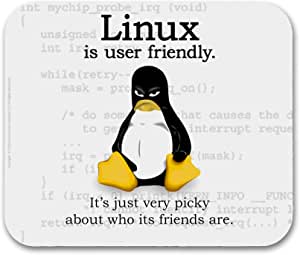Self Hosting is an Unhelpful Term
Mathew Duggan has a brilliant post called "Self-Hosting Isn't a Solution; It's A Patch". In it, he (correctly and convincingly) argues that compelling people to run their own computer services is a complex and distracting crutch for the current problems we face.
It's expensive to self-host, there are moderation problems, and the difficulty level is too high for most people.
But, in my opinion, I think he misunderstands something about self-hosting because, as a term, it is both misleading and unhelpful. When people say "Defund The Police" what they mean is "Move funds away from miliary style policing and give it to trained mental health professionals" - what people hear is "Abolish the police and let anarchy reign".
The ability to "Self Host" doesn't just mean "run this on a Raspberry Pi in your cupboard and be responsible for constant maintenance". Yes, you can do that if you're a masochist, but it isn't restricted to that.
To me, "Self-Hosting" means "I am in control of where I host something". I currently pay a company to host this blog. It has previously been hosted on Blogger, WordPress, my own VPS, and a variety of other services. Tomorrow I could decide to host it with a big company, or I could run it from my phone. I get to choose. That's what "Self-Hosting" is - a choice in where to host.
Similarly, Mastodon allows me self-host my account. I can have my content on one of the big servers and let them do moderation, storage, and maintenance for me - or I can move my account anywhere I choose. To a server in my cupboard and back again.
Email is similar. I know people who've gone from CompuServe, to HoTMaiL, to Gmail, to their own domain, then to OutLook. Their address-book moves with them. Forwarding rules ensure incoming email is routed correctly. They can choose to actively moderate spam, or outsource it. They can pay a company to host, keep backups in their basement, or watch adverts in return for services.
I agree with nearly everything Mathew says in his post. It is absurdly privileged to think that running your own services is something normal people want to do and are capable of doing. Strong regulation helps everyone, people want simplicity, and ecosystems can be fragile.
But witness all the people moving over from Twitter to new networks. Do they care where their data is hosted and how it is maintained? No! But they want to move their social graph with them. And when BlueSky and Mastodon collapse, people will want to move again.
In the UK, I have the ability to move my phone number between hundreds of providers. If I'm particularly techy, I can even run my own infrastructure and route the number there. People love the fact that they can leave crappy service providers and move somewhere cheaper or with with better customer service or whatever it is they value. I think that's a form of self-hosting; I get to choose who provides my services.
Similarly, I believe people have a desire for "self-hosting" which is difficult for them to articulate. They want to move their data around - be it old photos, a social graph, or a username. Most of them don't really care about the underlying technology (and why should they?) but they do care about continuity of service and being able to escape crappy service providers.
So, that's my reckons. Self-Hosting means you can choose where to host, and I think most people can find value in that.
What do you think?
#fediverse #ReDeCentralize #SocialNetworks

7 myths about “defunding the police” debunked
Howard Henderson and Ben Yisrael argue that far from being a radical movement, 'defund the police" is a well-researched, evidence-based policy proven to save lives and reduce a reliance on law-and-order policing.Brookings


